by Alex Shtaerman
For nearly a decade DJ Revolution has manned the turntables on the set of the longest running Hip-Hop show in the history of commercial radio, The World Famous Wake Up Show with hosts Sway and King Tech. Syndicated internationally from its home on Power 106 in L.A, The Wake Up Show has become synonymous with excellence in Hip-Hop broadcasting while garnering unprecedented success and acclaim from listeners around the globe. Aside from his weekly Wake Up Show duties, DJ Revolution has lent his now infamous scratch techniques and production skills to a multitude of artists, ripped up clubs all over the world and dropped too many mixtapes to name. With the September 16th release of his brand new album, King Of The Decks, Rev puts his production skills front and center. Collaborating with Hip-Hop luminaries such as KRS One, Crooked I, Royce Da 5’9”, The Boot Camp Clik, DJ Q.Bert, Bumpy Knuckles and DJ Premier, the celebrated DJ delivers an album that seeks to reconcile the presently dysfunctional relationship that exists between many of Hip-Hop’s DJs and MCs in today’s media driven bling culture. Recently we got a chance to chat with Rev about the new album, his vast perspective on DJing as well as what the future of The Wake Up Show may hold. Make sure you check out this must read interview!
Click here to listen to “The DJ’ featuring KRS One, straight fire from DJ Revolution.
RIOTSOUND.COM: One of the things that you’ve talked about is that in Hip-Hop today, the connection between the DJ and the MC has been severed. Do you feel like the rift may have started happening when a lot of producers began foregoing DJing as a starting point to their careers? When we think of great producers like DJ Premier, Pete Rock, Marley Marl and Dr. Dre, they were all DJs and started as DJs before they were producers. Today, a lot of producers just make beats but aren’t active DJs in any way. Do you think that phenomenon has contributed to the rift you’ve described between the DJ and the MC?
DJ REVOLUTION: I think it has a contributing factor when you get down to the studio experience and actually making the music. I definitely think that when you’re a DJ and you have that DJ edge and you bring that into the studio, it makes your music better. It’s like the difference between hiring a session musician to play the trumpet on your track and hiring an actual composer as well as a musician, somebody who knows how to write the music, knows what sounds good, someone who has a whole lot of experience.
And I think that if you weren’t a DJ, that doesn’t mean that you’re not going to be a great producer, but it just means that you would bring an edge if you were a DJ beforehand. I think what really makes the difference is in the perception of what a DJ does and is in Hip-Hop. Producers and MCs kinda just shut the door on the DJ; [they] shut him out of the videos, shut him out of actually having a feature on the song, shut him out of getting a shoutout on the record and saying “yo, check my DJ out”…
RIOTSOUND.COM: Why do you think that happened; because if we look at records from say the ‘80’s, almost every single artist was shouting out their DJ?
DJ REVOLUTION: It was [like that] in the ‘70’s, ‘80’s and the ‘90’s, all the way up to the mid ‘90’s. If you look at it, every group that was successful in the ‘80’s up to the mid ‘90’s had a DJ in the forefront. A Tribe Called Quest, EPMD, all these groups that sold millions of records all had a DJ as an integral part. The DJs were in all the videos, they were in all the tours, they did scratches on all the records. So the DJ was connected to the group. When you thought of EPMD, you usually though of DJ Scratch too; when you thought of Fresh Prince you thought of Jazzy Jeff, when you thought of A Tribe Called Quest you thought of Phife, Q-Tip and Ali-Shaheed, and Shaheed is the DJ and producer.
So that was monumental and it’s not like that anymore because look, for example, at Kanye West. Kanye West has one of the best DJs in the fucking universe at his disposal [DJ A-Trak]. But when people think of Kanye West, what do they think of? [pauses] Kanye West, that’s it. And I’m not saying that’s necessarily a bad thing and I can’t pinpoint when this trend started happening but as far as why it started happening, I think it’s both on the MC and the DJ. I think DJs started getting lazy and at the same time MCs started realizing that they could get real famous without the DJ and they stopped incorporating the DJs as much.
And then when DJs felt like they weren’t getting incorporated, they kind of splintered off into their own little subculture, and that’s when turntabism was born, which was strictly about scratching and doing all this other stuff. And then there was another subculture formed of just being a party DJ, and that was all people who were just strictly doing clubs. And then the mixtape DJ was born. It was all born because DJs are hustlers, we gotta hustle to survive with this shit. We don’t just rap, we gotta do a million different things. So if you take our food off the table, which was being part of a group, we gotta find other ways to do it, and we did. So you got all these little subcultures like, “I’m a mixtape DJ” or ”I’m a club DJ”, “I’m a radio DJ”, “I’m a turntablist” or “I’m a battle DJ”, I’m a blah blah blah blah… when it should just be “I’m a fucking DJ”. It’s really hard for people [these days] to really say what a DJ is and I’m trying to prove exactly what a DJ is again.
“I was digging through records and I heard the
sample and I was like, yo, this is that song! This is
going to be that shit. And only KRS is made for this”
RIOTSOUND.COM: On your new CD, King Of The Decks, you feature an abundance of artists that spit real lyrics. You got MCs from L.A., New York, Detroit, Boston; was there a conscious effort on your part to collaborate with people of great talent across the full geographic spectrum of Hip-Hop?
DJ REVOLUTION: Yea, that was definitely my goal; because everything is so regional now. To me, the most recent great producer album, Marco Polo’s album [Port Authority], that album was great for the East Coast because it showcased how much talent there really was in the East. But whether Marco just wanted to stay on the East and not collaborate [with other artists] or whether he didn’t have the resources or whatever it was at the time… that’s neither here nor there. I just felt like there’s so much great talent across the country and everything is so about the South now and so regional that I wanted to go everywhere else but the South to get the best spitters. There’s people from San Francisco that I missed out on, people from Seattle that I missed out on, people from North Carolina that I missed out on; and it’s like, I only have so much room on an album. So, the next go-around it’ll probably be an even broader spectrum.
RIOTSOUND.COM: “The DJ” featuring KRS One is one of the standout tracks on King Of The Decks, KRS really goes to the jugular. How did that song actually come together in the studio?
DJ REVOLUTION: I decided to get KRS for that [song] from the moment that I heard the sample. I was digging through records and I heard the sample and I was like, yo, this is that song! This is going to be that shit. And only KRS is made for this. I heard the whole song right in my head after hearing the sample like two or three times. So I made the beat and sent him a little rough copy, he said he was down and we set up a [studio] session. He came to session and was like, “yo, I need to hear this beat again; I haven’t heard it loud in quite a while”.
So we vibed [with the music] and then the craziest shit happened. He interviewed me for like an hour, it was just like you are asking me questions right now. He was asking me exact questions like that. Like, “what do you live by as a DJ?” “What do you consider not DJing?” “What are some of the main rules that you don’t break as a DJ?” “In the club, if you had to give me one sentence to sum up you club performance, what would it be?” He was really grilling me for like an hour before he wrote anything down. And he was scribbling notes and shit like that. And I was like, damn, this is crazy…
RIOTSOUND.COM: [laughs]
DJ REVOLUTION: And this is in my own studio. But see, this is why I called KRS though, because no other artist would have gone to that length. And he knew that I was dead serious with the intensity that I was answering these questions with. So he wrote all these notes and he was like, “alright, I’m good, you can leave me alone for like an hour”. So I went downstairs, chilled out with my homies, played a little X-Box, left him upstairs with the beat looped up for an hour and then when I came back upstairs he was like, “alright, I’m ready, I got it”.
And I had only thought he was going to write two verses. Dude writes three verses and one of them is a 16, one of them is a 20 and one is a 32, 32 bars! I was like, what! This dude went way above and beyond what I asked him to do. So then I get him in the booth and he just does his thing, he was a fucking monster. But, you know, of course I need to get exactly the record that I wanted, so I would tell him like – with this line maybe you can run that back and do it again, or get it tighter, or maybe change a word. And we really worked together on getting it tight. And again, this is why I called KRS. Because KRS has worked with so many producers that he would respect a producer’s decision. He would never get on some arrogant shit and be like, “no, fuck you man, this is my record, this is my rap, I wrote this”. He wasn’t gonna do that, he’s been there.
Every time I was making a change he was like “yo, it’s your record, get what you want; I’m here to make sure you get what YOU want”. So that’s why the song came out that way, because you had a complete professional in the booth and you had somebody who knew exactly what they wanted behind the boards. And that is MC and DJ shit right there, and that’s why it came out so good. And that is exactly my point: this is what happens when you get a DJ involved in the creative process from beginning to end.
RIOTSOUND.COM: As far as showcasing the actual artform of DJing and its various components, how do you go about that on King Of The Decks? What is the format? Is it blended? Are there cuts and scratches? Are there specific songs that showcase DJing skills? You got DJ Q.Bert and DJ Spinbad on the album – so how’s that whole side of things represented?
DJ REVOLUTION: Well, basically, exactly how you said. There’s a few songs on there [dedicated to DJing skills] – and it all has to be represented through concepts and themes. Picture it like this; if you have a kid who is sick and you gotta give him some medicine and the kid knows that the medicine might taste like shit because it looks like it came out of a medicine bottle and it’s something that they’ve never tasted before but you got to make them fucking eat it, what do you do? You fucking chop it up and you put it in some ice cream and you don’t tell them that you’re feeding them the medicine. That’s the only way they’re going to get it. So that’s what I have to do, I have to make it look like it’s something that it isn’t. I gotta put in a concept, I gotta put it behind a real straight Hip-Hop beat and I gotta make it entertaining for the average Hip-Hop fan.
The DJs and the people who are into DJ culture, they’re going to get it immediately, there will be no question about it; they’re going to love it. But that’s not my goal here because I made a Hip-Hop album so to represent [the DJ] side of the culture I have put it in themes. [DJ] Q.Bert is a fucking scratch alien, there’s no two ways to look at it; he’s an alien. So I made a song [with him] called “Invaders from the Planet Sqratch” and made the whole theme about that; and it’s really just about straight incredible scratch styles. Drum scratching, really intricate scratch patterns – the construction of it is just a really simple beat with scratching but I made it into a theme, so that’s where I’m able to showcase the scratching as part of a really intelligent concept.
The shit with Spinbad is about the battle aspect of DJing and the wordplay that we are known for, like putting together scratch sentences from different artists’ phrases; making a sentence out of other people’s words, that’s what DJ wordplay is. So I wanted to showcase that aspect by getting the only other person in the world that can hang with me on that level and have us go at each other’s jugulars for five minutes. But again, I had to set it up. I got Sway and Tech doing like the pre-fight interviews and a whole press conference shit, I really had to make it entertaining. Otherwise, to the average cat, they’re going to hear all that scratching and get turned off. You can’t just beat them over the head and I think that’s why in the past a lot of DJ albums have failed, because they give it to them in the raw. They give it to them and expect people to understand and be ready for it. The climate isn’t like that anymore, it’s not the mid ‘90’s, it’s not the late ‘80’s. The DJ isn’t part of that and therefore the public isn’t ready to hear all that scratching right off the top.
“Collectively, me, Sway and Tech have more
juice and respect and power than basically almost
everybody in that building combined, because we’ve
been doing this for so long; it’s like we’re [the station’s]
‘respect card’. Once you throw away the respect card,
you’re throwing away a big card in your hand”
RIOTSOUND.COM: You’ve been doing The Wake Up Show with Sway and Tech for nearly a decade. Obviously The Wake Up Show is a huge institution within Hip-Hop; what do you feel is the role the show has played over the years?
DJ REVOLUTION: [The role of the show] has definitely changed. When I first started it was beginning to make its way into the history books. And after five years into it, it was solidified, like you said, into a institution. Everybody knew what the show was, they knew who the players were, they knew who was coming up there. At one point it was probably the most listened to Hip-Hop show on the planet, and that was probably about five years ago. But in that five years [since], think about all the other changes that have gone on in the industry. Money wise, record label wise, radio wise, TV wise; when you see how roles have changed in the industry, how, for example, the role of MTV has changed, how BET has changed. When you look at all that you’ll understand that radio has changed as well.
The Wake Up Show has maintained its format but its relevance has changed because of the relevance of radio and its role has changed because of the role of radio. We’re still doing the same thing; we’re still playing great music, I’m mixing up the dope shit every week for millions of listeners and people love it and we still doing it like that but the role [of the show] has changed. Not as many people are listening to the radio anymore because the radio sucks ass.
RIOTSOUND.COM: [laughs]
DJ REVOLUTION: So unfortunately, we’re on the radio. If no one’s listening to the radio anymore, then really, we’ve lost a lot of listeners. Because people got so fed up, and we’re guilty by affiliation, we’re on a major commercial radio station and people don’t tune in to that anymore. And the major commercial radio station that we’re on [Power 106] wants to kill us. They want us to go away so they put us in the depths slot on Sunday nights here in L.A. We’re on at different times and different days in different cities, but here in L.A. where were based, we get no love from the station.
We get no cross-promotion, we get no tickets to any of the concerts, we don’t get invited to any of the meetings and we don’t get invited to any other special functions. I don’t even get a fucking keycard to go into the station on the weekends. So we gotta fight to keep what we’re doing on the air. I don’t have any beef with any of those guys [at the station] but they certainly ain’t showing us any love at all. And if they do, they’re going to say they’re showing us love just by keeping us on the air, like they’re doing us a favor.
RIOTSOUND.COM: So with the situation being that way, what do you think is going to ultimately happen with The Wake Up Show? Is there a possibility that you might move to satellite radio or go though an outlet other than Power 106?
DJ REVOLUTION: Well, I’ll tell you, it’s a love-hate relationship with the station. We love them for being able to have them as our outlet and they do let us do whatever we want to a certain extent. They don’t hold a play list over our head. And this isn’t meant to be like a bashing on them, I’m just explaining the cold hard facts. [The situation] is that way for whatever reason they deem it to be. They need us as much as we need them and that’s why we’re still on the air. They need us because aside from us they don’t have shit on the radio that makes them look good. Without us they’re just another radio station that has no connection to the real street, no connection to the real core of the music.
Collectively, me, Sway and Tech have more juice and respect and power than basically almost everybody in that building combined, because we’ve been doing this for so long; it’s like we’re [the station’s] “respect card”. Once you throw away the respect card, you’re throwing away a big card in your hand. Sway is on MTV, Tech does what he does and I tour the world and put out records and mixtapes and I have a huge core of fans and fuck with real artists. And I think [the station] knows what we do collectively and they don’t want to throw that away; so they keep us hanging on, they put us in the closet. We’re like the junk you keep around in the closet that you don’t want to throw away because you might use it one day, that’s how I look at the way the show is treated.
Where the situation may go, I don’t know. To be perfectly honest I’ll say I don’t really have an interest in the business of The Wake Up Show, I just love doing it. I’m riding with the shit until it’s over and it’s done, [because] I love it. I love my guys, they’re my family and I will continue to do the show as long as there’s an outlet for us to do it. As far as being on satellite radio, that’s on Sway and Tech. As far as being more of a presence on the internet, that’s on Sway and Tech. I got albums coming out, I got mixtapes, I tour; Sway’s on MTV doing his executive thing and producing shows and shit like that and Tech does what he does on the side. We all come together collectively and we make it work when we do the show, but with the changing times we gotta hustle a whole lot more now to keep the lights on. But to be honest with you, I think we’re going to stay right at Power 106 for a while. It’s not a bad relationship; it’s just almost a non-existent relationship. We’re there and they just let us be there, and that’s how it’s been.
RIOTSOUND.COM: You are also, of course, a producer, and you produced almost all of the tracks on King Of The Decks. With regard to your own personal production style; who are some of the producers that have influenced you over the years?
DJ REVOLUTION: Uhmm, shit, so many people. From all the way back to the late ‘80’s and Marley Marl – then coming up through the ‘90’s we got Premier, Large Professor, Pete Rock obviously. And then lately I’m influenced by my peers, Alchemist, Evidence, 9th Wonder, people like that, Kanye; people who are doing really innovative things and taking it to new heights and finding new ways to do things with music and using the technology at the same time.
DJ REVOLUTION: This next issue has obviously been debated for years but it seems to never completely go away. When kids coming up today are learning how to DJ, a lot of them are using CDs and some are using hybrid applications like Serato and so on; how legitimate is all that in you view?
DJ REVOLUTION: It’s absolutely legitimate, 100% …
RIOTSOUND.COM: So if you’re scratching with CDs it’s essentially the same; I mean, would it be something that is comparable to the experience of vinyl?
DJ REVOLUTION: Well CDs – I’ll tell you this, it doesn’t feel the same, none of it feels the same as vinyl, but what ever can? It’s analog and there’s nothing that will ever feel exactly the same. I’ve tried all these programs, I’m like THE guy that does that. And they never feel exactly the same. I use the one that’s closest. But I’m just saying, if you’re scratching on CDs, so be it. As long as you rock the fucking party.
I seen Maseo from De La Soul rock a whole party just on CD DJs, shit was dope, it was great. He wasn’t doing any crazy cuts and scratches but he was doing his thing, he rocked the party. So if you can do your job, entertain the crowd, represent DJing and represent what it is that you do, I don’t give a fuck how you do it, that’s the bottom line. The crowd shouldn’t be able to know. If you fuck it up to the point where the crowd is like, “oh, it’s that computer shit”, or “oh, it’s the CD thing” or, oh whatever whatever, then you’re messing up.
RIOTSOUND.COM: So as long as the crowd hears good music played properly, the bottom line is it doesn’t matter how it’s delivered.
DJ REVOLUTION: I mean, yea, to a certain extent. But if you’re talking about scratching and you’re talking about real serious DJ culture and the implication of using the digital format before you have had the benefit of using vinyl or the experience of doing clubs and lugging crates around, that’s a separate issue. But really, you can’t compare it to anything else. That’s like comparing a fucking kid driving a car today with power locks and windows to a person who got their first driving experience rolling up windows in an old school car. As long as you roll the window up, that’s it; it’s just a different means.
I got so much hate when I first started using these digital DJ programs but now everybody’s using them. And then when I switched programs everybody hated me for doing that. But what can you say when I’m killing you on the turntables with the digital format? When I’m doing my thing better than anybody else in a certain format on a digital platform, what can you say to me? So that’s really the bottom line. If you make the switch from vinyl to digital and you get worse, then you’re fucking up. Because [the digital format] is a tool; it’s like giving a mechanic a better ratchet. You should be getting better, you know what I’m saying? It’s like the difference between an electronic screwdriver and a manual screwdriver. You should be able to screw in everything twice as fast, and if you’re not, then you’re fucking up.
RIOTSOUND.COM: Talking about the various DJ subcultures that exist today; do you feel like there should be more interaction between DJs in different genres? For example, should Hip-Hop DJs be interacting more with House and Drum N Bass DJs? Would that be a good thing?
DJ REVOLUTION: Well, you know it’s interesting; I was in Shanghai and I was having dinner with a house DJ, a relatively big house DJ, [we both played a party] where he was spinning in one room and I was spinning in the other room. And he was talking to me about how they don’t have that kind of competitive nature in House music or any other DJ genre that we have in Hip-Hop. [He was saying how], “we just DJ, we just play music, there’s no attitude, we love the music and no one really cares if one DJ is like ten times better than the other and has hate for them [because of that]”. They’re just all happy [the House DJs], it’s like some “can’t we all just get along” type shit.
Where me, I was telling him, that’s what the whole point of Hip-Hop was, the competitive nature. And [Hip-Hop DJs] don’t hang out with House DJs because really we got nothing in common. I mean nothing. The attitude doesn’t exist, the culture is different, the clothes are different, the style of speak is different. So it’s like the only thing we got in common is that you play music and I play music. But I play music in a completely different way than you play it, so there goes that.
RIOTSOUND.COM: It’s funny that you say that – I know that if you go into the House scene as a DJ and bring that Hip-Hop competitive mindset into it, other DJs will get upset with you, like you’re trying to ruin it for them or something …
DJ REVOLUTION: Yea, I can imagine, they’re really like happy and sensitive dudes. It’s very interesting though to compare that shit but there really can be no comparison, its apples and oranges. House and Hip-Hop has always been an apples and oranges thing – but if you’re going to talk about Hip-Hop and all of its own little splintered off factions of DJing, then you got a conversation. Like, you got your celebrity DJs, that ain’t really even DJs. Then you got your Vegas style DJs that play in Vegas and they suck so bad that they can only play in Vegas where everybody’s drunk and throwing their money away and doesn’t care. And then you got your DJs that just play in Hollywood, where it’s a certain style of music and they can’t really play anywhere outside that scene. So it’s very interesting, we can have a whole other interview just about that.
RIOTSOUND.COM: You got King Of The Decks dropping on September 16th, what else should all the fans be looking out for as far as DJ Revolution goes?
DJ REVOLUTION: Directly after this album drops I’ma hit the road. So look for me to come to your city and tear down a club with a bunch of artists off the album. And also I got another installment of my “Class of” series of mixtapes. I have Class of 85, Class of 86 and Class of 87 will be the latest one that’s going to come out probably in early January of ’09. And that’s like a yearbook type tribute to Hip-Hop; it’s like a Time Life series. I’m also going to start working on another album probably early next year. It’s going to be an international album with the best dudes from around the world all put on to my production; in their native tongue obviously. So, China, Japan, Australia, Germany, France, all that. And I’m just going to keep DJing and keep making other DJs look silly, that’s my goal.
For more news and info on DJ Revolution stay tuned to www.DJRev.net and www.DuckDown.com






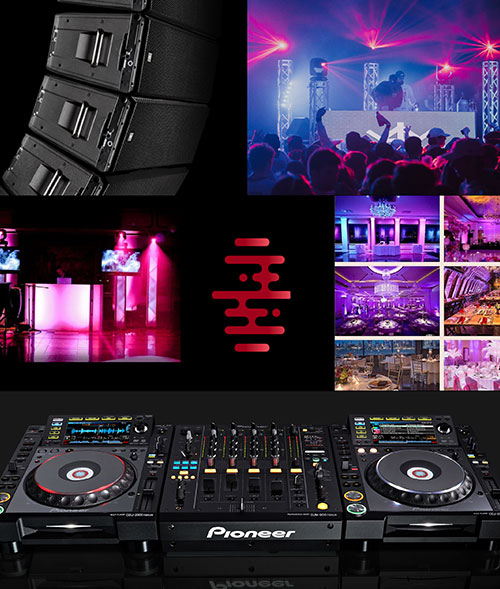


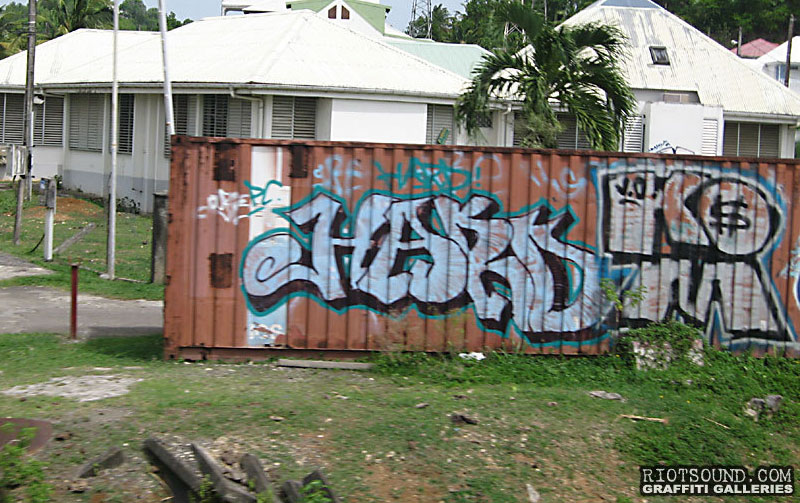

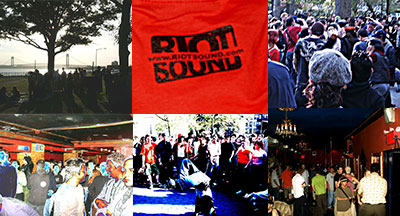
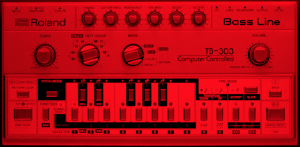













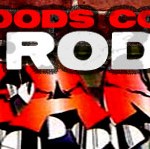


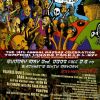

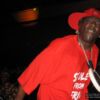
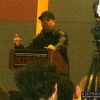
Comments